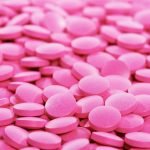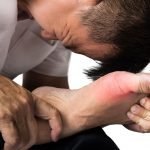A Naturopathic Approach to DM- Part 2
JAMES SENSENIG, ND
MONA MORSTEIN, ND, DHANP
This article joins a series of articles in NDNR that are based on transcripts of the Naturopathic Medicine Institute (NMI)’s Wednesday morning call-in program, The Vital Conversation. The program is hosted by senior Vitalists to enhance the ability of naturopathic physicians to practice as vitalist naturopathic doctors. In this lightly edited transcript (by Emily Kane, ND), the second part of a 2-part conversation, Drs Sensenig and Morstein delve into the mental/emotional realm and discuss how to conceptualize, in order to treat, an autoimmune disease. Their conversation took place on November 29, 2017.
Dr Sensenig: You mentioned the mental/emotional side of things. Do you see any common threads among those who have the physical symptoms of diabetes?
Dr Morstein: I wouldn’t say I see common threads necessarily. Look, it’s America. How many patients have anxiety or depression? Millions! Why so many? Maybe because of eating badly, or stress eating; or maybe they’re so stressed out by caring for this or that in their life, that they don’t have time to exercise.
I can’t just tell someone, “You need to exercise 1 hour a day, 5 days a week.” First, I have to understand their life. If they haven’t been able to exercise, what are the blocks to that critical self-care piece? What is my role in getting them able to do basic self-care in a way that doesn’t make them even more stressed out and also not feeling judged if it takes a while to implement necessary changes? I don’t want my protocols to add more stress!
Dr Sensenig: I’m being facetious here… So, it’s not just an insulin problem?
Dr Morstein: Right!
Dr Sensenig: Dr Joe Bouchet, for whom the Bouchet Institute of Naturopathic Medicine is named, knew Dr Best, who wrote Best and Taylor’s Physiological Basis of Medical Practice. Best is supposed to have discovered insulin.
Dr Morstein: Oh yes, Frederick Banting, MD, and his student, Charles Best – the Canadians from Toronto. They first isolated insulin in 1922.
Dr Sensenig: The story Dr Bouchet told us in school was that insulin was discovered when they were working with dog cadaver pancreases. If I understand correctly, they found that the pancreases degraded in heat. The organs were oozing something, and they decided to analyze the ooze. That’s how they found insulin. It was one of those many things in medicine that is discovered by serendipity, not by a conscious, structured, or logical search for an answer.
Dr Bouchet quoted Dr Best as saying, “If I had known what they were going to do with this information, I wouldn’t have elaborated it.” His own feeling was that the mechanistic, reductionistic, allopathic, conventional approach was applied to the medical use of insulin because of its role in the active transport of glucose; but then it became the end-all and be-all for this thing called diabetes mellitus, as opposed to considering the whole system as an ecosystem where everything is related to everything else.
Dr Morstein: This conundrum is pertinent today. If we look at how conventional medicine treats type 1 pediatric diabetic patients, the protocol is: “You have type 1 diabetes, so eat what you want and cover it with insulin.” This will never, ever create a good situation for the patient. We end up calling these kids “brittle” because their sugars go up and down all the time. And the standard medical response is, “Oh, it’s so difficult to deal with diabetes, because all these kids are so brittle.” They just throw their hands up and stick the kids on insulin pumps. Now here we are 100 years after the invention of exogenous insulin, which would be best reserved for emergencies, to inject into people to save their lives. But, instead, these kids are getting problematic care and chronic synthetic and expensive insulin delivery because of the standard medical philosophy that compels the use of insulin.
Dr Sensenig: You could make the same argument about so-called “autoimmune” diseases or heart diseases or skin diseases. Instead of getting care for the individual, conventional doctors are using drugs to simply suppress the symptoms.
A couple of years ago, a young mother came to my clinic who had a daughter who had been diagnosed with type 1 diabetes very early in life. The mother became very active in the Juvenile Diabetes Association. One time she came in after having attended a fundraiser. She remarked at that visit that what had amazed her most is how many children were at the event compared to just a year or 2 before. She thought, “What is going on here? This is an epidemic among our children, and it can’t simply be our eating habits.”
Dr Morstein: It’s true that type 1, not just type 2, is increasing throughout the world, as are other autoimmune diseases. I am really interested in what is going on to increase autoimmune processes. There are ongoing trials, including ones sponsored by our government, to answer this pressing question. In a trial called the TEDDY Trial, they’re looking at type 1 diabetics and examining everything from the mother’s health while she was pregnant, whether the child was breastfed, their vitamin D intake, antibiotic use, vaccination scheduling, etc. They’re taking a very comprehensive look into whether there are any consistent etiologic risk factors that we can zero in on. It’s a good study, and is ongoing. We Vitalists have an understanding of what is going on with autoimmunity. The studies showing how clinical development of diabetes is predated by leaky gut is right up naturopathic medicine’s alley. The individual mechanism for each individual patient would ideally be uncovered, whether it’s exposure to toxins, or nutrient deficiencies, or pharmaceutical damage.
We know that exercise can prevent diabetes genes from turning on. Our kids have been hijacked by their cell phones and computers. Who knows if a lack of playing outside after school for 2 hours a day or not even having gym in school might be promoting a turning-on of diabetic genes that might not have otherwise been turned on. There are so many factors.
Dr Sensenig: It’s good that this study is multifactorial. But from a philosophical point of view, my criticism of that study is that we are looking for 2 or 3 things in the environment that may be the cause, as opposed to looking at the whole picture.
My idea is that an autoimmune disease is not due to an immune system that is out of control because it’s overactive; it’s out of control because it’s compromised. A compromised immune system is grasping at straws. It’s so weakened, or so incompetent, as to not recognize self versus non-self.
Those of us who have been in practice for decades know that the way to approach a chronic condition, including autoimmunity, is to increase the vitality and health of the patient, because that restores normal function to the immune system.
A naturopathic Vitalist’s answer to “Why are we seeing this increase in type 1 diabetes?” is all the factors that you’ve mentioned: the degradation of the environment, stress, lack of exercise, crazy diet, toxins everywhere, the microbiome, which in most people is “out to lunch” thanks to antibiotic over-use and other chemical exposures.
I’ve had a number of patients with ongoing GI problems who have gone to gastroenterologists who are now recommending fecal transplants. I find it kind of ironic that the profession that has been scared to death of microbes for a century – the same profession that has you using antibiotics in hand soaps, shampoos, toothpaste, toilet paper, etc; the same profession that gives you antimicrobials for everything; the same profession that tells you, “Do not take probiotics when you’re on chemotherapy, because they’re bacteria” – these same guys who are scared to death of bacteria want to put somebody else’s bugs up your butt?!” Explain that!
Also, what are you getting in a fecal transplant? Obviously, you’re getting the microbiome from a screened healthy donor. But is it all good guys, or could you be getting bad guys?
Dr Morstein: That’s an interesting comment. When I was at a 2-hour dinner that was a gastroenterology CME event, a guy said that he had a patient with IBS who decided on his own to do a fecal microbiota transplant using his daughter’s poop.
If you’re going to do that, there are certain guidelines. But he didn’t do any of that; he just went online to YouTube, collected his daughter’s poop, prepared it, and did the fecal microbiota transplant himself.
Not only did it not help with his IBS symptoms, but he wound up for the very first time in his life having a severe episode of clinical depression, which was a condition his daughter was dealing with! When he put her microbiome into his body, he wound up manifesting her clinical depression.
Dr Sensenig: There is research that shows that certain microbes are associated with certain conditions, including anxiety and depression.
Let’s talk about clinical outcomes. Have you ever seen a “normal child” suddenly develop the symptoms of type 1 diabetes?
Dr Morstein: All the time.
Dr Sensenig: What are the circumstances?
Dr Morstein: I have asked myself, “Is this just have a virus? Did this follow a vaccination? Did they have this or that?” There are a huge percentage of kids who are from happy homes with loving parents, and they’re on vacation, and they just start getting weak and tired and eating and peeing more than usual.
I get kids who were never vaccinated, have eaten healthy from the get-go, they’re not eating junk, and they suddenly develop type 1 diabetes. I have seen many cases of type 1 where the onset is a mystery.
Dr Sensenig: To be clear, when we’re talking about type 1, we’re talking about the presumed autoimmune problem with the pancreas, where little or no insulin is produced. And that can occur at birth or any time thereafter. It doesn’t have to actually be someone who is born with it.
Dr Morstein: Actually, type 1 will start after the age of 1. If there’s diabetes before age 1, it’s usually a genetic defect.
Dr Sensenig: So, is it something environmental?
Dr Morstein: Something happened to them on planet Earth that initiated their type 1 diabetes. They were born with the gene, but then something had to happen to turn the gene on.
Dr Sensenig: As opposed to type 2, which we were taught was lifestyle-induced, or that the onset is at a later age when insulin resistance occurs.
Dr Morstein: Now, as you know, that can happen when you’re as young as age 13. With type 2, you’ve got your insulin; it’s just that your cell receptors are not responding well to it.
Dr Sensenig: Is this the right nomenclature for today? Do we still talk about type 1 and type 2?
Dr Morstein: Yes. What we don’t talk about is “insulin resistant” and “non-insulin resistant.” That’s archaic because most type 2s wind up on insulin. Using the numbers is the best way to designate the types of diabetes at this point.
Dr Sensenig: How do you see this being related to gut function?
Dr Morstein: The idea with leaky gut is that, potentially, some enteroviruses from the gut infect the pancreas, which then starts an immune reaction that goes awry and destroys the pancreatic beta cells. Research has started to uncover this mechanism. The enteroviruses found in the gut have been found in the pancreas of some type 1 kids. These kids have upregulated zonulin in their GI tracts, which is a marker for leaky gut. With type 2 diabetes, often accompanied by problematic dysbiosis, the bugs get out of whack and can start producing TNFα and other cytokines that cause cells to become insulin resistant.
An inflamed gut from dysbiosis tends to absorb more calories. But an out-of-balance gut microbiome can also reduce the absorption of nutrients, antioxidants, and healing fatty acids. It’s complex; there are several different ways gut problems can become systemic issues and help initiate a type 2 reaction.
Dr Sensenig: Commensal bacteria have a symbiotic relationship with our other microbiota; they’re doing each other a favor. The symbiosis between us and our biome raises the obvious question: Are the bugs using us, or are we using the bugs? Are these bugs growing inside of us, or are we growing around the bugs? This is an interesting philosophical question because there are more of them, in terms of actual cells, than there are of us. I’ve heard there are 10 times more bacterial genes than human genes in any given human! The relationship, it appears, is symbiotic.
Dr Morstein: Absolutely. God, or Nature, or however you want to look at it, set things up to be mutually beneficial. But, depending on what we put into our gut, or depending on how things change, it sometimes isn’t as mutually beneficial as it’s supposed to be. In a truly healthy, vital person, this concept works really well. But there are obviously so many ways to throw the gut out of balance, which will throw off the entire balance of health.
The gut has so much influence on the health of the body and mind. I think it’s nearly impossible to have good health or a happy mind with an unhappy gut.This column, based on the Vital Conversations of the Naturopathic Medicine Institute, will continue in next month’s NDNR. The column will feature Dr Letitia Dick and how she works to enhance the Vital Force.

James Sensenig, ND, was a 1978 graduate of NCNM in Portland, OR. For over 40 years he maintained an eclectic practice in Hamden, CT. Over the years, Dr Sensenig held prominent positions in the various naturopathic colleges and the AANP. A champion of classical naturopathic medicine, Dr Sensenig received an Honorary Doctor of Naturopathic Philosophy degree from CCNM, and received numerous awards for his dedication to teaching the principles of naturopathic medicine.

Mona Morstein, ND, DHANP, is considered an expert in both gastroenterology and hormonal conditions, especially diabetes. Dr Morstein taught gastroenterology for 11 years at a naturopathic medical school. She is a frequent lecturer on webinars and at conferences, including the first and second SIBO SOS™. She has numerous lectures archived at MedicineTalkPro.org. Her book, Master Your Diabetes: A Comprehensive, Integrative Approach for Both Type 1 and Type 2 Diabetes is a highly regarded publication for both the diabetic patient and medical practitioners. A senior vitalist in the Naturopathic Medicine Institute, she practices in Tempe, AZ, at Arizona Integrative Medical Solutions: www.drmorstein.com.










